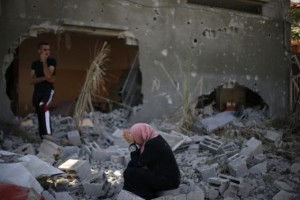To celebrate its centennial anniversary, the Women’s International League for Peace and Freedom (WILPF) is organizing a large-scale public conference on “Women’s Power to Stop War”.
Date: 27 to 29 April 2015
Venue: World Forum, The Hague, NL
Almost 100 years ago, more than a thousand women from twelve countries assembled in The Hague to protest against World War I and formulate conditions for a lasting peace. From this unique conference, of which Aletta Jacobs was one of the organizers, the WILPF originated.
Again in The Hague, WILPF will festively celebrate its 100th anniversary by the end of April 2015 in the form of an international congress at the Peace Palace (accessible for WILPF sections only) where a bust statue of Aletta Jacobs will be revealed, followed by a public conference.
This conference will cover a wide range of topics such as: Human Rights, Disarmament, Social and Economic Justice and Sustainability. These are dedicated to the promotion of peace and the eradication of violent conflicts. The three-day program consists out of several parts: plenary sessions, 40 workshops and roundtable discussions, international speakers, a market, exhibitions, public actions, a music festival and various creative activities.
Everyone is welcome to contribute a bit to a new peace agenda for the 21st century, tackling the very causes of violent conflicts. To register and for further information, click here.


